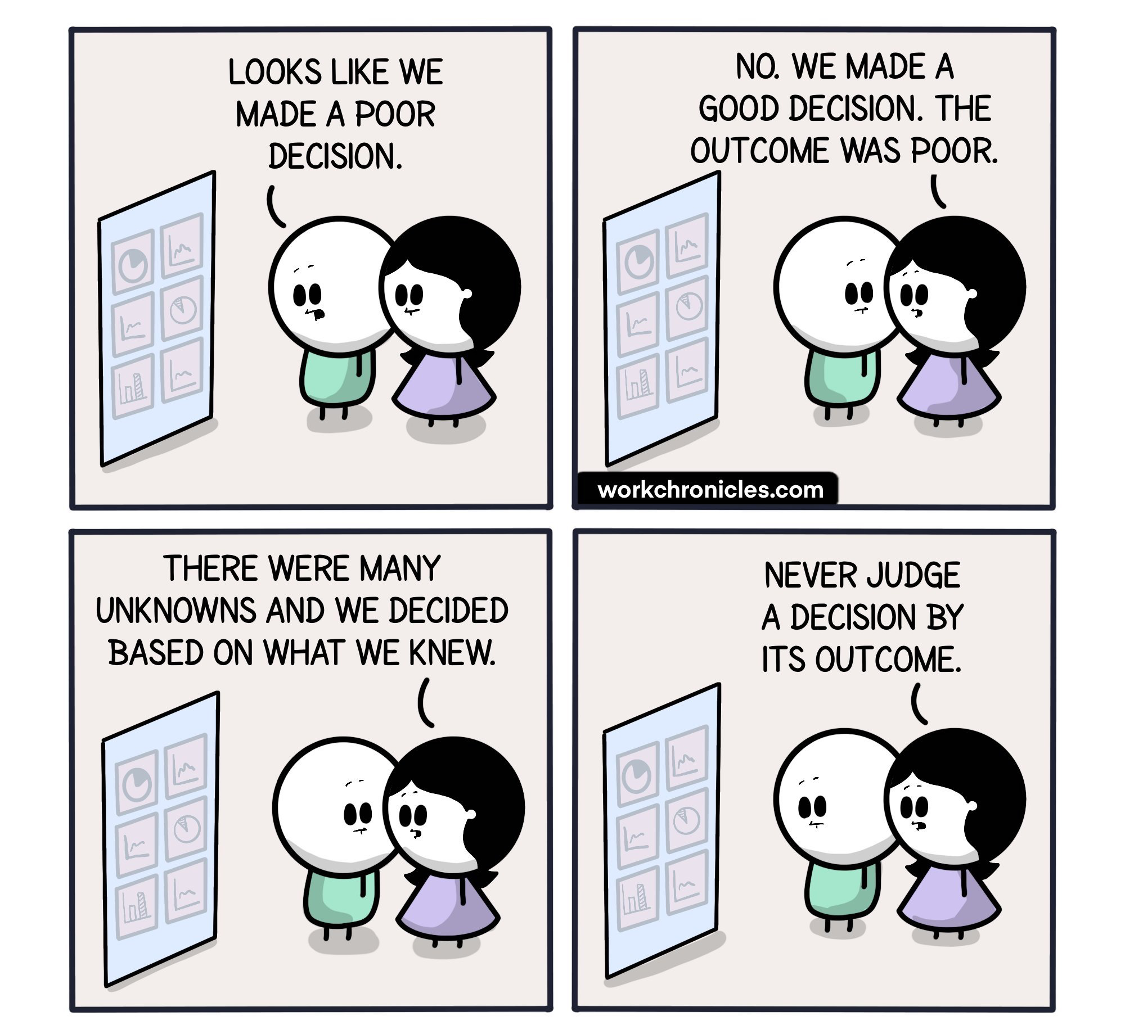On Decisions
We make decisions all the time. Some with lots of degrees of freedom, some with only a few, or even one. Sometimes we make decisions with lots of empirical evidence and experience, other times, not so much. And sometimes, we choose to not choose, but as Neil Peart said,
If you choose not to decide, you still have made a choice
And assuming free will, choices have consequences. The question is, how do you know if you made a good decision or not? What do you measure to grade a decision?
At least, you should think about the information you had when you made the decision. How reliable was it? How much weight did you give it? Was the data biased? Were you biased in your interpretation of it? That doesn’t mean to exclude experience, history, or your “gut feel”, but it does mean that you need to be honest with yourself about how much you let intangibles influence your decision.
How much do you really need to decide? Do you need all the details, or is choosing a direction enough at this point? Often, the earlier you make a decision the less specific it needs to be. You can adjust to changes and new information. Other times, it’s a key decision that all other choices will guide off, so specificity is important.
Did you compare the cost (whatever that means) of implementing one decision or another against the potential benefits if things work out the way you want and if they go the other way? The less information and surety you have about the outcome the more important it is to think about not just the cost of implementing, but the cost of recovery.
Did you think about the impact of your decision on the decisions and plans of others? Does it work towards or against their goals? There’s no right answer, but a good decision takes those things into account.
In short, can you give a clear, logical, unbiased, and unambiguous explanation of why you choose what you did? If you did, it was probably a good decision. If you can’t go back and re-evaluate your decision and understand how you can make a better one.
And here’s an even more important point. Whether or not you made a good decision is orthogonal to the outcome of the decision.

